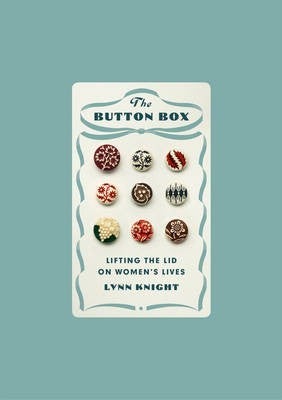Lynn Knight, The Button Box: Lifting the lid on Women’s Lives: 'The past is all buttoned up', book review
The reader can dip in and out at any point, but reading chronologically offers a sweeping look at how women’s clothing has developed

Your support helps us to tell the story
From reproductive rights to climate change to Big Tech, The Independent is on the ground when the story is developing. Whether it's investigating the financials of Elon Musk's pro-Trump PAC or producing our latest documentary, 'The A Word', which shines a light on the American women fighting for reproductive rights, we know how important it is to parse out the facts from the messaging.
At such a critical moment in US history, we need reporters on the ground. Your donation allows us to keep sending journalists to speak to both sides of the story.
The Independent is trusted by Americans across the entire political spectrum. And unlike many other quality news outlets, we choose not to lock Americans out of our reporting and analysis with paywalls. We believe quality journalism should be available to everyone, paid for by those who can afford it.
Your support makes all the difference.There was a time, it seems, when everyone’s grandma owned a button box with a glorious assortment of colours and shapes that dazzled many a child.
Lynn Knight remembers her own gran’s precious button box, an old Quality Street tin, and being allowed to use the buttons as money in her pretend shop.
She takes inspiration from these treasure troves to explore the social history of women’s lives in a book of 28 chapters, each dealing with a specific type of button and explaining how and why it was used.
The reader can dip in and out at any point, but reading chronologically offers a sweeping look at how women’s clothing has developed as our place in society has evolved.
And Knight raids her own button box – which includes donations from her grandmother, Aunt Eva, and mother.
She begins by looking at jet buttons and their journey from Victorian mourning wear to glamorous evening gowns.
Real jet, a form of fossilised wood that can be polished to a brilliant shine, is fragile and prone to damage. Most are actually pressed glass, which is cheaper and more durable but still bears a striking resemblance to the real thing. It is such little-known facts that make Knight’s book such a delight.
Linen buttons, “the lowliest button of all”, were cheap and had myriad uses from basic baby clothes to men’s working shirts.
They also had one important quality; they could survive the mangle intact. Three pearl buttons, which graced a home-made dress that Knight’s mother wore after being adopted, lead to an examination of the hand-made clothes and tokens that women made for babies before giving them up for adoption.
Knowing they would never see their child again, they poured a lifetime of love into a small memento.
The suffragettes used buttons and clothes to indicate their support for women’s votes, with the WSPU colours of purple, white and green becoming very popular and on sale in upmarket shops.
The Button Box: Lifting the lid on Women’s Lives, by Lynn Knight. Chatto & Windus £15.99
Join our commenting forum
Join thought-provoking conversations, follow other Independent readers and see their replies
Comments